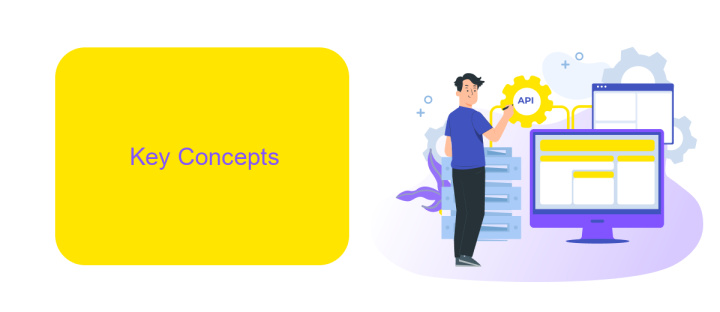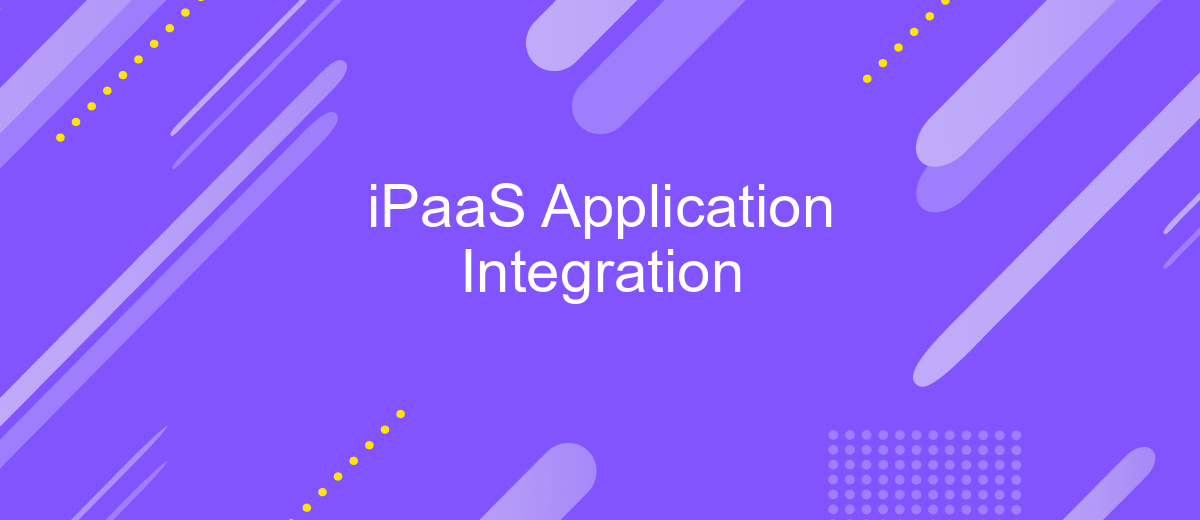iPaaS Application Integration
In today's fast-paced digital landscape, businesses require seamless integration of various applications to ensure smooth operations and data flow. Integration Platform as a Service (iPaaS) offers a robust solution for connecting disparate systems, enabling efficient data exchange and process automation. This article explores the fundamentals of iPaaS, its benefits, and how it can revolutionize your organization's application integration strategy.
Introduction
In today's rapidly evolving digital landscape, businesses are increasingly relying on diverse applications and systems to streamline their operations. Integration Platform as a Service (iPaaS) offers a comprehensive solution for connecting disparate software applications and automating workflows. This technology enables organizations to seamlessly integrate cloud-based and on-premises applications, ensuring data consistency and operational efficiency.
- Automated data synchronization between different applications
- Scalability to accommodate growing business needs
- Enhanced data security and compliance
- Real-time monitoring and analytics
One notable example of iPaaS in action is ApiX-Drive. This platform simplifies the integration process by providing user-friendly tools and pre-built connectors for popular applications. Businesses can set up integrations without needing extensive technical expertise, allowing them to focus on their core activities. By leveraging iPaaS solutions like ApiX-Drive, companies can achieve greater agility and responsiveness in their operations, ultimately driving growth and innovation.
Key Concepts

iPaaS (Integration Platform as a Service) is a cloud-based solution that enables seamless integration of various applications and services within an organization. It provides a unified platform where different software systems can communicate and exchange data efficiently. Key concepts in iPaaS include data mapping, which ensures that data from one application is correctly transformed and delivered to another, and workflow automation, which streamlines repetitive tasks by automating data flows between systems.
One of the essential tools for achieving effective iPaaS integration is ApiX-Drive. This service simplifies the process of connecting various applications and automating workflows without requiring extensive coding skills. ApiX-Drive supports a wide range of applications, making it easier for organizations to synchronize data and optimize their operations. By leveraging such tools, businesses can enhance their agility, reduce manual errors, and improve overall efficiency in their application ecosystems.
Benefits and Use Cases

iPaaS (Integration Platform as a Service) offers numerous benefits for businesses looking to streamline their application integration processes. By utilizing iPaaS solutions, companies can easily connect disparate systems, automate workflows, and enhance data accuracy. These platforms provide a scalable and flexible approach to integration, reducing the need for extensive coding and manual intervention.
- Automated Workflows: iPaaS solutions like ApiX-Drive enable businesses to automate repetitive tasks, saving time and reducing human error.
- Scalability: These platforms can grow with your business, allowing you to add new integrations as needed without significant reconfiguration.
- Data Synchronization: iPaaS ensures real-time data synchronization across multiple applications, enhancing data consistency and reliability.
- Cost Efficiency: By minimizing the need for custom development and maintenance, iPaaS solutions can significantly lower integration costs.
- Enhanced Collaboration: Seamless integration of various applications fosters better collaboration and communication within teams.
Overall, iPaaS solutions like ApiX-Drive simplify the integration process, making it accessible for businesses of all sizes. Whether you need to connect CRM systems, automate marketing campaigns, or synchronize data across multiple platforms, iPaaS provides a robust and efficient solution.
Considerations and Challenges

When implementing an iPaaS (Integration Platform as a Service) solution, several considerations and challenges must be addressed to ensure a smooth and effective integration process. Proper planning and understanding of potential obstacles can significantly enhance the success of your integration efforts.
One of the primary challenges is ensuring data security and compliance. As data flows between different applications and systems, it is crucial to maintain robust security measures to protect sensitive information. Additionally, compliance with data protection regulations like GDPR and HIPAA is essential to avoid legal repercussions.
- Data Security and Compliance
- Scalability and Flexibility
- Integration Complexity
- Monitoring and Maintenance
Another important consideration is the complexity of integrating multiple applications with varying data formats and protocols. Utilizing a service like ApiX-Drive can streamline this process by offering pre-built connectors and an intuitive interface for managing integrations. Furthermore, ongoing monitoring and maintenance are crucial to ensure the integrations remain functional and efficient over time.
Conclusion
In conclusion, iPaaS (Integration Platform as a Service) has revolutionized the way businesses handle application integration, offering a seamless and efficient solution to connect disparate systems. By leveraging iPaaS, organizations can achieve real-time data synchronization, streamline workflows, and enhance overall operational efficiency. The flexibility and scalability of iPaaS make it an ideal choice for businesses of all sizes, enabling them to adapt quickly to changing market demands and technological advancements.
One notable example of a service that facilitates such integrations is ApiX-Drive. This platform simplifies the process of connecting various applications and automating workflows without the need for extensive coding skills. With its user-friendly interface and robust features, ApiX-Drive empowers businesses to set up integrations swiftly and manage them effectively. As the digital landscape continues to evolve, embracing iPaaS solutions like ApiX-Drive will be crucial for businesses seeking to maintain a competitive edge and drive innovation.


FAQ
What is iPaaS?
How does iPaaS benefit businesses?
Can iPaaS integrate with both cloud-based and on-premises systems?
Is technical expertise required to use iPaaS?
What are some common use cases for iPaaS?
Do you want to achieve your goals in business, career and life faster and better? Do it with ApiX-Drive – a tool that will remove a significant part of the routine from workflows and free up additional time to achieve your goals. Test the capabilities of Apix-Drive for free – see for yourself the effectiveness of the tool.

